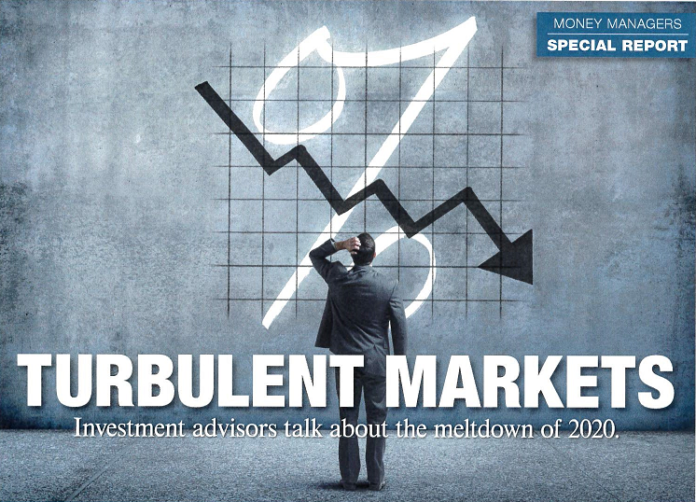For years, the stock market had chugged along, racking up new record highs on a regular basis. On Feb. 12, the Dow Jones hit a high of 29,551 for the year while the Nasdaq hit its high of 9,817.18 on Feb. 19. A month later everything changed. As the coronavirus pandemic spread and worsened, the markets were not immune. On March 23, the Nasdaq had fallen to 6,861, its lowest for the year, while that same day the Dow hit its low point of 18,592. Both markets have since partially recovered, with the Dow closing at 24,575.90 on May 20 while the Nasdaq closed at 9,375.78. Still, it was a season of turmoil for those in the money management industry. Christopher Lamia, a Thousand Oaks-based partner at Forum Financial Management, said that it was the speed at which the drop in the markets came that took everyone by surprise. By the week of March 23, the S&P 500 had lost about 37 percent of its value, which was still better when compared with the market drop during the Great Recession of 2008-2009. But Lamia noted that 12 years ago, “it took months for that to play out, but here it was a matter of a month or so.” The steep decline created a difficult time for him and other money managers, not to mention their clients, who were concerned with their health and the health of the family and friends, Lamia said. The situation was complicated by the fact that no one has lived through a pandemic like this before and there was no frame of reference. “When you combine that uncertainty with the pace of the decline, it caused a lot of emotional challenges for clients,” said Lamia. In this Special Report, the Business Journal lets money managers tell their experiences of the 2020 market meltdown. They often repeat the message that investment involves risk – and clients should remain in the market despite the turbulence. For Lamia, the downturn has provided the opportunity to get back to basics and to focus on what he – and the client – can control. That means reviewing the financial plan to understand why certain asset allocations were done before the pandemic and whether those assumptions were still true for the client, not withstanding the pandemic. “If it made sense before the pandemic that you had, for example, 60 percent stock in your portfolio based on the projections for the client’s retirement, has that changed? Has your budget changed – not just in the short term but long term?” Lamia asked. “If there aren’t (any changes), perhaps we shouldn’t allow the emotion to cause a change and potentially damage your long-term plan.”
